Bin Xiang
Predicting Cascading Failures with a Hyperparametric Diffusion Model
Jun 12, 2024



Abstract:In this paper, we study cascading failures in power grids through the lens of information diffusion models. Similar to the spread of rumors or influence in an online social network, it has been observed that failures (outages) in a power grid can spread contagiously, driven by viral spread mechanisms. We employ a stochastic diffusion model that is Markovian (memoryless) and local (the activation of one node, i.e., transmission line, can only be caused by its neighbors). Our model integrates viral diffusion principles with physics-based concepts, by correlating the diffusion weights (contagion probabilities between transmission lines) with the hyperparametric Information Cascades (IC) model. We show that this diffusion model can be learned from traces of cascading failures, enabling accurate modeling and prediction of failure propagation. This approach facilitates actionable information through well-understood and efficient graph analysis methods and graph diffusion simulations. Furthermore, by leveraging the hyperparametric model, we can predict diffusion and mitigate the risks of cascading failures even in unseen grid configurations, whereas existing methods falter due to a lack of training data. Extensive experiments based on a benchmark power grid and simulations therein show that our approach effectively captures the failure diffusion phenomena and guides decisions to strengthen the grid, reducing the risk of large-scale cascading failures. Additionally, we characterize our model's sample complexity, improving upon the existing bound.
Description on IEEE ICME 2024 Grand Challenge: Semi-supervised Acoustic Scene Classification under Domain Shift
Feb 05, 2024
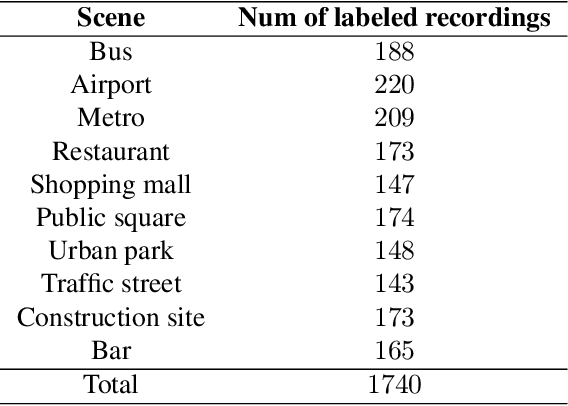
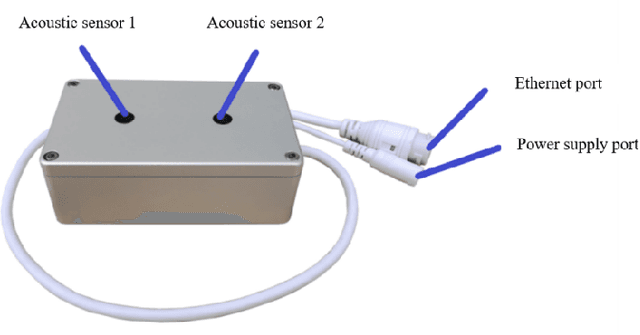
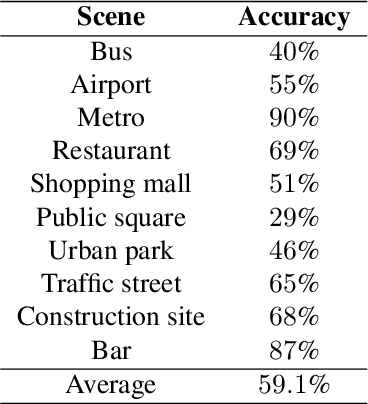
Abstract:Acoustic scene classification (ASC) is a crucial research problem in computational auditory scene analysis, and it aims to recognize the unique acoustic characteristics of an environment. One of the challenges of the ASC task is domain shift caused by a distribution gap between training and testing data. Since 2018, ASC challenges have focused on the generalization of ASC models across different recording devices. Although this task in recent years has achieved substantial progress in device generalization, the challenge of domain shift between different regions, involving characteristics such as time, space, culture, and language, remains insufficiently explored at present. In addition, considering the abundance of unlabeled acoustic scene data in the real world, it is important to study the possible ways to utilize these unlabelled data. Therefore, we introduce the task Semi-supervised Acoustic Scene Classification under Domain Shift in the ICME 2024 Grand Challenge. We encourage participants to innovate with semi-supervised learning techniques, aiming to develop more robust ASC models under domain shift.
Comparison Lift: Bandit-based Experimentation System for Online Advertising
Sep 16, 2020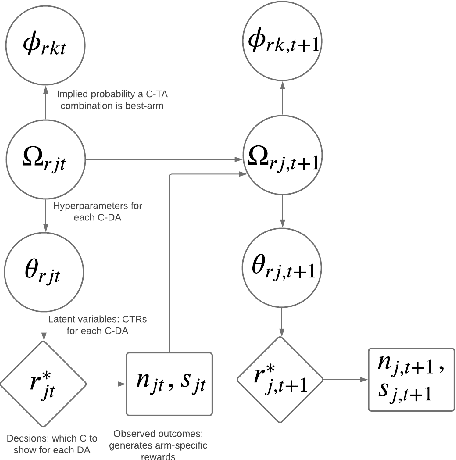
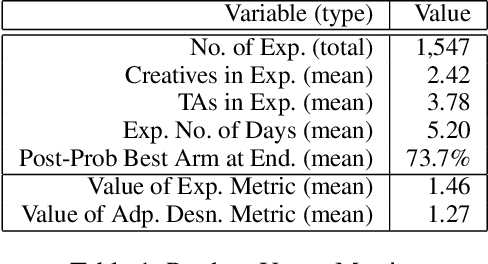
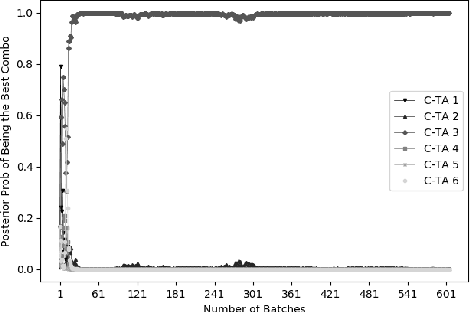
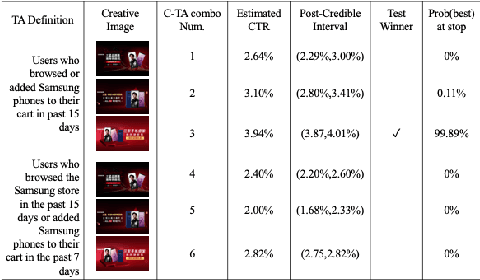
Abstract:Comparison Lift is an experimentation-as-a-service (EaaS) application for testing online advertising audiences and creatives at JD.com. Unlike many other EaaS tools that focus primarily on fixed sample A/B testing, Comparison Lift deploys a custom bandit-based experimentation algorithm. The advantages of the bandit-based approach are two-fold. First, it aligns the randomization induced in the test with the advertiser's goals from testing. Second, by adapting experimental design to information acquired during the test, it reduces substantially the cost of experimentation to the advertiser. Since launch in May 2019, Comparison Lift has been utilized in over 1,500 experiments. We estimate that utilization of the product has helped increase click-through rates of participating advertising campaigns by 46% on average. We estimate that the adaptive design in the product has generated 27% more clicks on average during testing compared to a fixed sample A/B design. Both suggest significant value generation and cost savings to advertisers from the product.
 Add to Chrome
Add to Chrome Add to Firefox
Add to Firefox Add to Edge
Add to Edge